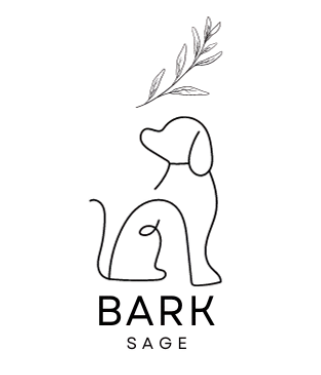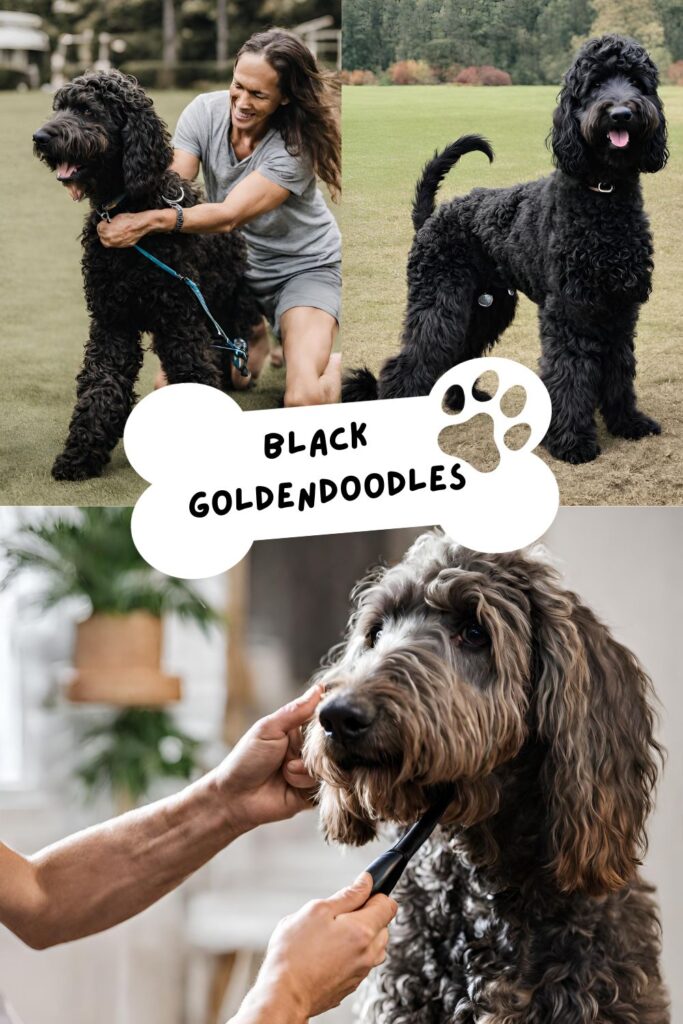As a pet parent, watching your beloved dog suffer from anxiety can be heart-wrenching. From the whines and the pacing to those soulful, worried eyes, the silent plea for relief is something no dog owner ever wants to see. Understanding that anxiety in dogs is as real and pressing as it is in humans, we seek to provide comfort in the form of dog anxiety medication and calming care. The quest for the right drugs for anxiety in dogs often leads us on a path paved with prescription medication, but it’s the love for our canine companions that motivates us to find the most gentle yet effective treatments.
With the backing of veterinary medicine and guidelines set forth by the American Veterinary Medical Association, treating canine anxiety is more informed than ever before. Whether your furry friend is dealing with dog separation anxiety, an entrenched anxiety disorder, or the sporadic stressors that upset their tranquility, there is an array of anxiety meds that promise to restore balance to their world. After all, every pet parent aspires for nothing less than a healthy and joyful life for their dog.

A worried-looking dog sitting alone in a dark room, with a beam of light shining down on it. The room is filled with different medication bottles and supplements scattered around, symbolizing the different anxiety treatment options available for dogs. The dog’s expression should show a mix of fear and hope, as it tries to find relief from its anxiety.
Key Takeaways
- Effective drugs for anxiety in dogs range from trazodone to SSRIs and TCAs.
- Early intervention for dog separation anxiety can increase treatment efficacy.
- American Veterinary Medical Association guidelines assist with safe prescription medication choices.
- Calming care incorporates both medication and environmental changes for dog anxiety treatment.
- Dog health is as much mental as it is physical, making it crucial to address canine anxiety.
- Understanding your dog’s anxiety is the first step in providing comfort and care.
Understanding Anxiety in Dogs and the Need for Medication
Anxiety can manifest in our canine friends in a myriad of ways, from the subtlest changes in body language to overt symptoms that can affect a dog’s overall well-being. As a loving pet parent staying vigilant for these signs can be crucial to the timely management and treatment of anxiety within veterinary medicine.
Recognizing Signs of Canine Anxiety
Identifying the signs of anxiety in an anxious dog begins with keen observation. Telltale behaviors, such as excessive barking, restlessness, or attempting escape, are often the more observable signs of anxiety. However, subtler shifts in dog behavior, like changes in posture or decreased social interaction, can also indicate distress.
Causes and Types of Anxiety in Dogs
The reasons behind a dog’s anxious behavior can be as varied as the behavior itself. Often linked to separation anxiety or traumatic experiences, canine anxiety can also be triggered by environmental changes. Situations like moving to a new home, loud noises indicative of noise phobia, or even alterations in the family dynamic can bring about anxiety. An integrative approach involving dog training, environmental adjustments, and appropriate dog food that promotes health can ameliorate some symptoms.
The Role of Medication in Managing Dog Anxiety
While training and lifestyle adjustments are fundamental, for some dogs, these steps alone are not sufficient. Various forms of anxiety medication can serve as invaluable tools for bringing an anxious dog’s symptoms under control. Prescription medication options include trazodone, typically used for canine separation anxiety, tricyclic antidepressants, and selective serotonin reuptake inhibitors (SSRIs). These medications adjust levels of serotonin in the brain, contributing to mood stabilization. However, it’s important to be mindful of side effects, such as serotonin syndrome, a potentially serious condition.
For a clearer understanding, let’s review a table of common anxiety medications.
| Medication Type | Used for | Common Brands | Possible Side Effects |
|---|---|---|---|
| Trazodone | Separation Anxiety, Generalized Anxiety | Desyrel, Oleptro | Sedation, Gastrointestinal Disturbance |
| Tricyclic Antidepressant | Generalized Anxiety, Compulsive Behaviors | Clomicalm, Anafranil | Anticholinergic Effects, Cardiac Effects |
| SSRI | Separation Anxiety, Situational Anxiety | Prozac, Zoloft | Behavioral Changes, Serotonin Syndrome |
It is vital to note that any anxiety medication should only be administrated under the guidance of a professional in internal medicine or a veterinarian with a focus on veterinary medicine. The appropriate drug and dosage depend heavily on the individual dog and the specific type of anxiety being treated.
Drugs for Anxiety in Dogs: Options and Efficacy
When it comes to managing canine anxiety, pet owners often seek effective dog anxiety treatments that encompass a holistic approach. Anti anxiety medications are critical for dogs experiencing severe anxiety, offering a path to tranquility that few other treatments can match.
Finding the right anxiety meds for a beloved pet can be daunting. Reliable anti anxiety meds range from prescriptions designed to tamp down acute stress to over-the-counter solutions that support long-term wellness. The goal is clear: to provide a serene environment for our canine companions through a variety of calming treatments and medications.

A calm and relaxed dog lying down on a comfortable bed surrounded by different types of anxiety medication options such as pills, capsules, and liquids. The medications are arranged neatly with labels indicating their specific use for dogs. The background is a soft color gradient of calming blues and greens, creating a serene atmosphere.
For instances of heightened distress, dog appeasing pheromone products and calming treats can be used alongside prescription meds to help moderate a pet’s anxiety response. These therapies work by releasing pheromones similar to those a mother dog emits, or by including ingredients known to induce calmness, offering an additional layer of support during stressful times.
Behavior modification plays a substantial role in managing dog anxiety. Techniques learned through behavior modification can significantly reduce the dependency on medications, by addressing the root causes of distress and reshaping a dog’s response to anxiety-inducing stimuli through positive reinforcement.
“The combination of anti anxiety medication and behavior modification creates a strong foundation for a dog’s mental health and should be tailored to each individual pet’s needs.” – American Veterinary Society of Animal Behavior
Below is a table showcasing common medications and treatments, along with their typical applications and benefits:
| Medication/Treatment | Type | Application | Benefits |
|---|---|---|---|
| Trazodone | Prescription Med | Severe Anxiety, Post-Operative Recovery | Quick-Acting, Can be used as needed |
| SSRIs (e.g., Fluoxetine) | Prescription Med | Generalized Anxiety, Compulsive Disorders | Long-Term Anxiety Management |
| Calming Treats | Over-the-Counter | Mild Anxiety, Training Aid | Ease of Use, Can Support Behavior Modification Efforts |
| Dog Appeasing Pheromone Diffusers | Over-the-Counter | Environmental Stress, Situational Anxiety | Non-Pharmacological, Can be Combined with Meds |
Regardless of the choice of anti-anxiety meds or calming treatments, it’s imperative that dog owners consult with a veterinarian to determine the most appropriate approach for their pet’s unique needs. Each dog’s response to different treatments can vary, underscoring the importance of a personalized plan that considers both medication and behavior modification strategies.
Conclusion
As pet parents, finding successful ways to manage dog anxiety can often be as multidimensional as the condition itself. While prescription medication plays a pivotal role in offering immediate relief, it’s the amalgamation of behavioral modification strategies that promises more sustainable results. Engaging in dog training that promotes positive changes in dog behavior is essential. By consistently applying behavioral modification techniques, dog owners can significantly enhance the quality of life for their canine companions and achieve long-term relief from anxiety disorders.
Incorporating Behavioral Modification for Long-Term Relief
Behavioral modification is not merely a tactic but a process that requires patience and dedication. For pet parents dedicated to mitigating canine separation anxiety or any anxiety disorder, it is an invaluable tool. Structured dog training sessions conducted by knowledgeable professionals can dramatically improve an anxious dog’s response to stress-inducing situations, ultimately leading to a calmer, more confident pet. Supportive care from the dog owner enhances these efforts and bolsters the bond between the pet and parent, fostering a secure environment for the dog to thrive.
Natural Remedies and Supportive Care Alongside Medication
When it comes to managing dog anxiety, the use of natural remedies can be thoughtfully integrated with conventional treatments for a harmonious approach. Products like rescue remedy or other calming care supplements might provide gentle support, easing the nerves of anxious canines. Moreover, employing supportive care practices, including consistent routines and providing a safe space for your dog, can further reinforce a sense of security and well-being in your pet.
When to Consult a Veterinary Behaviorist for Your Anxious Dog
There are cases, especially those involving severe anxiety, where a pet parent may feel outmatched. It is during these times that the expertise of a veterinary behaviorist becomes crucial. These professionals specialize in the intricate interplay between behavior and health, crafting bespoke behavioral modification plans that cater to the unique needs of your pet. When standard interventions don’t suffice, do not hesitate to seek such specialized care. It could be the key to unlocking a less anxious, more joyous life for your furry family member.


